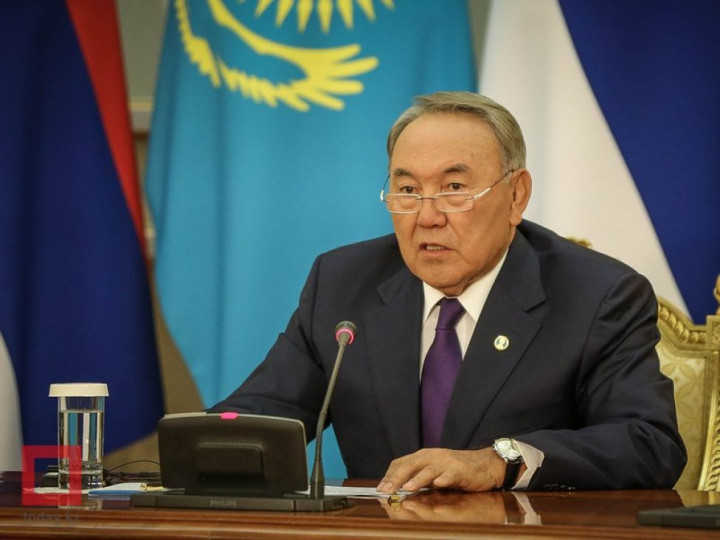Dear people of Kazakhstan!
I address you on the fundamental issue for our country.
The issue concerns the redistribution of powers between branches of government.
A special Working Group was created in accordance with my Decree. The Group has done a great job.
I was briefed on the work accomplished by the Group.
The upcoming reform is based on the principles of our development and the principles of modern development in general.
The quintessence is that the President delegates some powers to the Parliament and the Government.
Vertical separation of power has been necessary for us in the course of overcoming enormous difficulties of the state formation.
That principle has justified itself. All our achievements were accomplished precisely under this system.
The reform is aimed at improving the executive system efficiency.
We have created a new state, a new economy, and a new society.
Our development path’s efficiency proved right in the course of history. Marking our Independence’s 25th anniversary we have told about our achievements, including the work of the authorities and the presidential system.
But the world is changing before our very eyes.
The speed and complexity of social processes are growing in Kazakhstan.
Already today we have to think how to respond to global and regional challenges that will inevitably take place in the coming future.
The essence of the proposed reform is a serious redistribution of power, democratization of the political system as a whole.
Under the new conditions, the President’s priorities will include strategic functions, the role of supreme arbiter in the relations between the branches of government.
The Head of State will also focus on the foreign policy, national security and the country’s defence.
The role of the Government and the Parliament will increase significantly.
The work will be carried out in two key areas.
First of all, it is necessary to transfer a significant part of powers in regulation of social and economic processes from the President to the Government and other executive bodies.
The government, ministries and akimats (regional executive offices) will be fully responsible for that.
Delegation of powers can be achieved through changes in the relevant laws. About 40 functions can be transferred either to the Government or the Parliament.
Government will introduce these amendments as a matter of priority to the Parliament to be adopted before the end of the current session.
Second, a more difficult task is to balance the relationship between the branches of government on the constitutional level.
It is important to strengthen the Parliament’s role in the Government formation, to enhance the Cabinet’s responsibility before the deputies.
The winning party in the parliamentary election will have a decisive influence on the Government’s formation.
On that basis it will be logical, if the government abdicates authority to the newly elected Majilis, not the President, as it has been before.
It is necessary to simplify the procedure for expressiing no-confidence to the Government members from the Houses of Parliament.
That will strengthen the control of the legislature over the executive branch of power.
We should also transfer the right of approval of state programs to the Government, for which it will bear full responsibility.
Government should have the right to form and abolish the central executive bodies that are not part of it.
The President may waive the right to cancel or suspend the Acts of the Government and the Prime Minister.
All of that will increase the responsibility of the executive agencies and their officials and will give them the necessary authorities.
The current rules on the possibility of adopting the presidential decrees that have the force of law have lost their relevance.
It is proposed to strengthen the role of Parliament in relation to the local executive authorities.
In addition, we need to study the issue of improving the functioning of the Constitutional Council, the judiciary and the Prosecutor’s Office.
At the same time, we need unconditional assurances for immutability of our constitutional system.
The Working Group will continue to function; they need to thoroughly examine all of these issues and to prepare a package of proposals for further public review.
The proposed program will help to solve three problems.
Firstly, it will help to ensure the political system stability for years to come.
Secondly, increasing the role of the Government and the Parliament will provide a more effective mechanism of response to modern challenges.
Yes, it is a more complex control system, but also the society has become more complex.
I am deliberately going to delegate a large part of the powers held by the President.
And I will do it with a single purpose, which is to build a more efficient, sustainable, and a modern system of governance.
Thirdly, there is no universal model of government in the world. We are all in search of it.
We have never engaged in copying foreign models of government. We have been trying to find our own, often unique solutions, although there are questions where we follow international experience.
Our proposed reform is based primarily on our own experience and needs of Kazakhstan.
The reform program is our answer to the question in what direction Kazakhstan will move.
The answer is clear and consistent: we will move in the direction of democratic development.
Given the importance of the proposed measures, I decided to submit for public discussion the constitutional reforms draft, which will be published.
A relevant decree has been issued.
All of that is in line with the country’s future development and meets the five institutional reforms.
The 5th Issue “Open Government” has suggested a significant redistribution of powers. To ensure that all branches of government work effectively and responsibly, it is important to create the appropriate system of balances and counterbalances between them.

